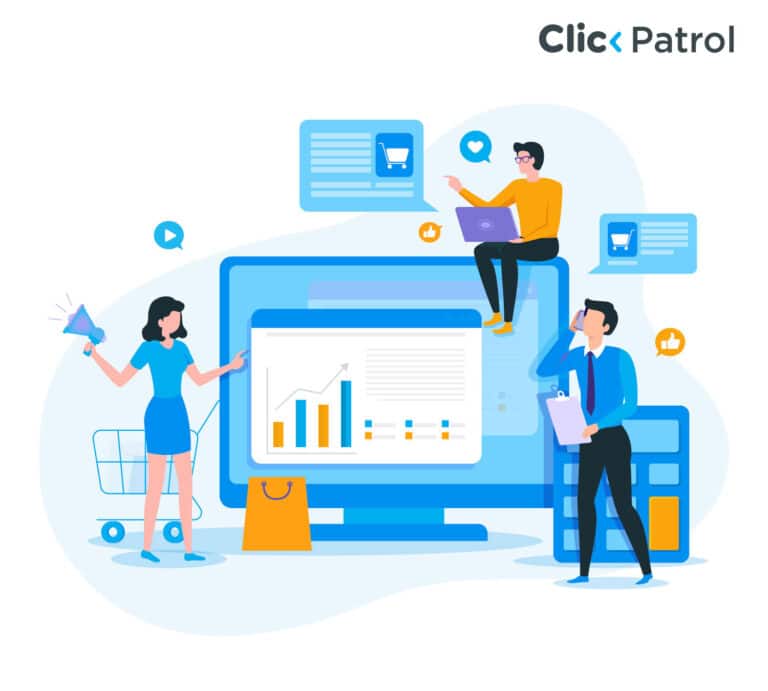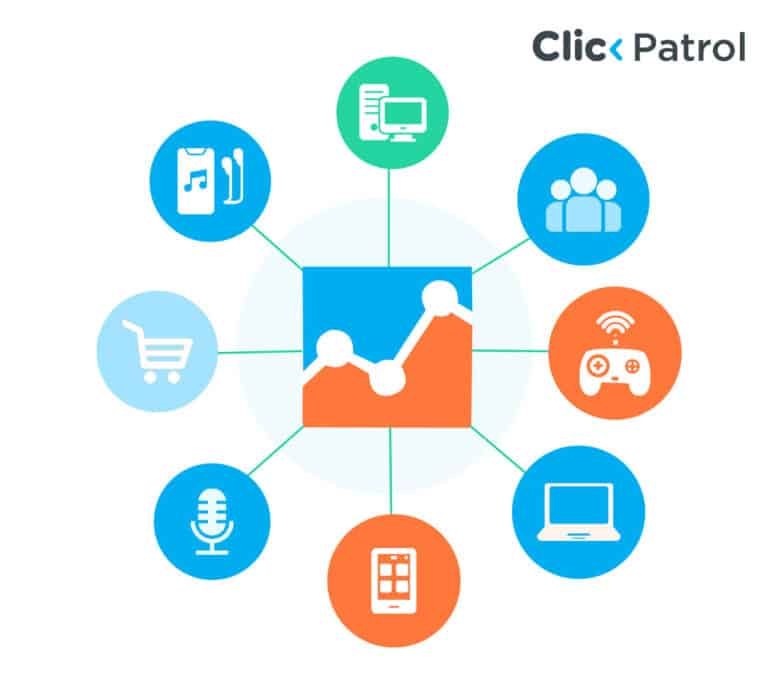
Top 18 Captcha Alternatives to Prevent Spam Attacks
Abisola Tanzako | May 15, 2024

CAPTCHAs, short for “Completely Automated Public Turing Test to Differentiate Between Computers and Humans,” are widely employed as a fundamental tool in the digital world. They provide a line of defense against spam bots for websites. Despite their widespread use, traditional CAPTCHAs have been subject to criticism due to their limitations in accessibility and user-friendliness. The text-distortion puzzles, in particular, pose significant challenges for many users.
Table of Contents
- Why Captcha alternatives are needed
- The top 18 Captcha alternatives
- 1. Honeypots:
- 2. Arkose Labs:
- 3. MTCaptcha:
- 4. CleanTalk:
- 5. DataDome:
- 6. CapMonster Cloud:
- 7. Invisible reCAPTCHA:
- 8. Bot Protection Software:
- 9. Anti-spam Plugins:
- 10. Web Application Firewall (WAF):
- 11. Multi-factor authentication (MFA):
- 12. AuthKong:
- 13. hCaptcha:
- 14. Behavioral Analysis:
- 15. KeyCAPTCHA:
- 16. Mosparo:
- 17. GeeTest:
- 18. ALTCHA:
- Benefits of Captcha Alternatives
- Enhanced user experience:
- Easy incorporation:
- Broad programming language compatibility:
- Improved accessibility:
- Insightful data:
- Potentially superior security:
- Customizability:
- Diminished privacy concerns:
- Reduced maintenance expenses:
- Negligible disruption:
- Limitations of Captcha Alternatives
- Conclusion
- FAQs
This article will explore some of the most promising CAPTCHA alternatives that offer enhanced security and ensure a seamless user experience.
Why Captcha alternatives are needed
Once a reliable line of defense against spam and automated attacks, they are increasingly recognized for their limitations and drawbacks. For many users, these security measures can be a source of frustration, often leading to failed attempts at verification and subsequently abandoned transactions. The accessibility of CAPTCHAs is another significant concern. They pose challenges for non-English speakers and visually impaired users, creating barriers to access.
The growing ineffectiveness and concerns about user data collection practices associated with some CAPTCHAs underline the need for more user-friendly, accessible, and efficient verification methods. As such, the demand for alternatives to CAPTCHA is on the rise.
The top 18 Captcha alternatives
1. Honeypots:
Honeypots are concealed fields or links embedded within a webpage to detect and obstruct automated bots. As an effective anti-spam strategy, honeypots present a viable alternative to traditional CAPTCHAs. This technique involves implementing coding methods that display additional forms invisible to human users but detectable by spambots. These bots are programmed to complete and submit these forms automatically upon detection.
2. Arkose Labs:
Arkose Labs presents itself as an innovative alternative to conventional CAPTCHAs. Instead of relying on distorted text or images, It employs a dynamic challenge-response system that adapts to each user’s behavior. This system, Arkose MatchKey, is designed to confront contemporary threats by offering an optimal balance of defensibility, usability, and accessibility within a single product. One of the standout features of Arkose MatchKey is its use of a key image, which addresses a significant challenge in design: the need to convey instructions that are universally understandable across all languages and cultures.
3. MTCaptcha:
MTCaptcha is an innovative alternative to traditional CAPTCHA systems, offering robust website protection against automated attacks. It stands out as an intelligent captcha service that goes beyond the ordinary, ensuring compliance with GDPR and WCAG and instilling absolute trust in privacy and accessibility. MTCaptcha’s unique feature is its adaptive, invisible captcha, which guarantees a seamless verification process for genuine users while maintaining a solid defense against bots.
4. CleanTalk:
CleanTalk is a cloud-based service that offers a unique solution to the spam problem. It is specifically designed to safeguard websites from spambots without needing CAPTCHA. It provides a transparent layer of anti-spam protection, complete with comprehensive statistics on all comments and logins. What separates CleanTalk is its invisible protection techniques that eliminate the need for CAPTCHA, questions, or answers, facilitating easier information exchange on websites.
5. DataDome:
DataDome offers an innovative solution to the traditional CAPTCHA system. It is an AI-driven tool designed to manage online fraud and bot interference. Unlike the conventional CAPTCHA models, DataDome employs invisible challenges to differentiate between humans and bots. A key feature of this system is the ‘Device Check,’ which serves as an unnoticeable alternative to CAPTCHA, safeguarding genuine users while deterring bots.
6. CapMonster Cloud:
CapMonster Cloud is a cloud-based solution that automatically recognizes various types of captchas, including reCaptcha and hCaptcha. This service is known for its speed, up to 30 times faster than manual recognition services, and its cost-effectiveness, which is twice as affordable. With a success rate of 99%, it is highly reliable and experiences minimal downtime. CapMonster Cloud offers seamless integration with various popular automation tools and software. Thanks to its ready-made libraries, it can be easily integrated into any program and supports various coding languages such as C#, Python, JS, GO, and PHP.
7. Invisible reCAPTCHA:
Google’s Invisible reCAPTCHA security feature is an effective alternative to traditional CAPTCHAs. It offers a less intrusive user experience than the conventional reCAPTCHA system. Rather than requiring users to solve a challenge manually, Invisible reCAPTCHA employs machine learning and behavioral analysis to scrutinize user behavior and activity.
8. Bot Protection Software:
Bot Protection Software is a robust cybersecurity tool that identifies and neutralizes automated bot threats. It’s adept at detecting automated interactions and is frequently employed in cyber-attacks such as Distributed Denial of Service (DDoS) and spam email campaigns. Other PPC protection software such as ClickPatrol is important to protect your PPC campaigns against bot and non-human clicks.
9. Anti-spam Plugins:
Anti-spam plugins are a viable alternative to CAPTCHAs, offering a user-friendly approach to safeguarding websites from unwanted spam comments and trackbacks. These plugins employ a variety of filters and features to identify and block spam comments, spam submissions via contact forms, and other forms of malicious content.
10. Web Application Firewall (WAF):
A Web Application Firewall (WAF) is a security measure that can also be an alternative to CAPTCHA. It can be set up, for instance, in AWS WAF, to generate and verify CAPTCHA challenges for web requests that align with the firewall’s rules. The WAF operates as a protective barrier for a website, filtering out malicious traffic and potential threats from the internet.
11. Multi-factor authentication (MFA):
Multi-factor authentication (MFA) is a security protocol that enhances protection by necessitating multiple verification methods. It amplifies security protocols by validating the user’s identity through various credentials or authentication factors. Google’s research indicates that MFA can effectively thwart up to 99% of bulk phishing attacks and eliminate automated bot attacks.
12. AuthKong:
AuthKong is an efficient and user-friendly innovative captcha service that safeguards your website from spam and abuse while ensuring a smooth passage for genuine users. Its intuitive slider and icon captchas present a superior alternative to conventional captcha systems such as reCAPTCHA. Utilizing a comprehensive database of recognized bots and spam, AuthKong identifies and obstructs harmful users.
13. hCaptcha:
hCaptcha is a cost-free and privacy-centric substitute for Google’s reCAPTCHA. It operates as a CAPTCHA solution that prompts website visitors to categorize images. hCaptcha is an alternative to reCAPTCHA because it can halt sophisticated spambots that can evade other CAPTCHA forms. hCaptcha employs AI to counteract web scraping, ticket scalping, denial of inventory, credential stuffing, card cracking, and ad fraud, making it a robust security solution.
14. Behavioral Analysis:
Behavioral analysis is an effective alternative to CAPTCHA for preventing bot access to online resources. This method involves meticulously tracking a user’s behavior, including mouse movements, keyboard patterns, and browsing history, to discern whether the user is a human or a bot. Unlike CAPTCHA, behavioral analysis is more user-friendly as it doesn’t require additional input from the user.
15. KeyCAPTCHA:
An alternative to reCAPTCHA, KeyCAPTCHA is a free tool that enhances your website’s security. It is widely used to differentiate humans from bots during form submissions by offering an interactive CAPTCHA with social features. KeyCAPTCHA employs simple puzzles, including images, to distinguish between humans and bots. It’s compatible with PHP websites such as WordPress, Joomla, Drupal, and vBulletin and is straightforward to install.
16. Mosparo:
Mosparo, an open-source tool in the realm of cybersecurity, is recognized as a user-friendly substitute for conventional CAPTCHAs. Its primary function is to safeguard online forms and websites from undesirable submissions and spam, enhancing the overall user experience by making the process more efficient.
17. GeeTest:
GeeTest is a comprehensive security solution offering a variety of CAPTCHA services. It is a bot mitigation tool that utilizes AI-driven puzzle games instead of traditional visual recognition challenges to distinguish between genuine users and bots. By collecting data from users’ interactions with the CAPTCHA, GeeTest can identify malicious characteristics and detect new patterns of attacks.
18. ALTCHA:
ALTCHA is a unique, free, open-source, and self-hosted alternative to traditional CAPTCHA systems. It safeguards websites, APIs, and online services from spam and undesirable content. ALTCHA employs a proof-of-work mechanism to provide robust protection against bots and automated attacks while ensuring a user-friendly experience for website visitors. In compliance with GDPR, ALTCHA does not use cookies, fingerprints, or track users, making it a privacy-conscious choice.
Benefits of Captcha Alternatives
The benefits of Captcha alternatives include:
Enhanced user experience:
Traditional CAPTCHAs, which often require users to interpret distorted text or solve complex puzzles, can be a source of frustration and consume a significant amount of time. In contrast, CAPTCHA alternatives offer a more user-friendly approach involving tasks that are less exasperating and more intuitive. For example, other options require users to identify objects in images, which is typically quicker and more straightforward than interpreting distorted text.
Easy incorporation:
Integrating these alternatives into existing systems is effortless, guaranteeing a seamless transition.
Broad programming language compatibility:
They are compatible with various programming languages and frameworks.
Improved accessibility:
Traditional CAPTCHAs can pose significant challenges for individuals with disabilities, visual impairments, and motor difficulties. CAPTCHA alternatives can be more accessible, employing audio challenges, voice recognition, or other methods that do not depend on vision or fine motor skills.
Insightful data:
These alternatives offer actionable insights and recommendations, equipping decision-makers with data-driven strategies. This feature boosts the overall security strategy by pinpointing potential vulnerabilities and proposing enhancements.
Potentially superior security:
Some CAPTCHA alternatives are engineered to be more challenging for bots to solve than traditional CAPTCHAs because they may involve tasks that are harder to automate, such as identifying intricate patterns or responding to natural language prompts.
Customizability:
These alternatives provide the flexibility to be tailored to a project’s unique requirements, offering a bespoke solution. This adaptability enables a more individualized approach to security, improving the overall user experience while upholding strong defenses against spam and undesired submissions.
Diminished privacy concerns:
Traditional CAPTCHAs often necessitate users to disclose personal information, like their email address or phone number. CAPTCHA alternatives can be architected to respect user privacy more effectively by collecting users’ minimal or no personal data.
Reduced maintenance expenses:
Traditional CAPTCHAs can be costly, as they necessitate continuous development and updates to keep pace with the ever-evolving bots. However, some CAPTCHA alternatives can be less expensive, as they may not require as much development effort.
Negligible disruption:
The influence on the development pace is negligible, ensuring the project timeline remains intact.
Limitations of Captcha Alternatives
- Privacy concerns: Certain alternatives, particularly those involving behavioral analysis, may raise privacy concerns among users who are cautious about their data being collected.
- Limited adoption and standardization: Compared to traditional CAPTCHAs, some alternatives are less widely adopted and may only be supported across some platforms, leading to user consistency.
- Potential bias: Some other options that depend on user interaction or interpretation could inadvertently introduce bias, making it more challenging for specific demographics to pass the challenge.
- Maintenance and development costs: Implementing and maintaining some CAPTCHA alternatives, especially those involving custom difficulties, can be more resource-intensive than traditional CAPTCHAs.
- Evolving bot tactics: As CAPTCHA alternatives become more prevalent, bot creators are likely to develop new methods to circumvent them, necessitating continuous adaptation of the chosen solution.
- Dependence on specific user skills: Some alternatives may rely on particular user skills or knowledge, disadvantaging users who lack these abilities.
- Accessibility issues: Some other options, such as click-through challenges or intricate puzzles, may pose difficulties for users with disabilities.
Conclusion
While traditional CAPTCHAs have been effective, their limitations require investigating other options. By delving into CAPTCHA alternatives, website administrators can enhance the user experience, accessibility, and potentially even security. It’s crucial to consider your website’s unique requirements and select a solution that optimally balances security and user experience. By doing so, you can discover a CAPTCHA alternative that strikes a harmonious balance between providing a secure environment and ensuring a positive user experience.
FAQs
Q.1 What is the best CAPTCHA alternative?
The optimal choice for a CAPTCHA alternative depends on your website’s unique needs and security demands. There’s no universal solution, but several options are available. hCaptcha, for instance, is lauded for its security and cost-effectiveness. Mosparo and ALTCHA are other noteworthy options. These alternatives employ various techniques, including biometrics, behavior analysis, and device reputation, to bolster security while improving the user experience.
Q.2 Are CAPTCHA alternatives secure?
Yes, alternatives to CAPTCHA can be secure. They employ various methods, such as biometrics, behavior analysis, and device reputation, to distinguish between humans and bots. Like any security measure, their effectiveness depends on their implementation and the evolving sophistication of threats. It’s crucial to keep them updated and monitored for potential breaches.

